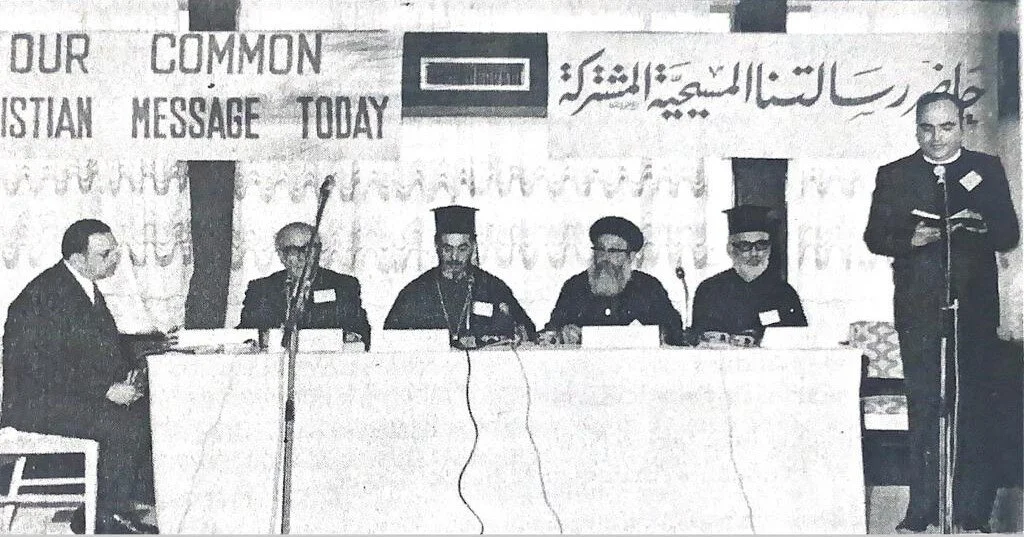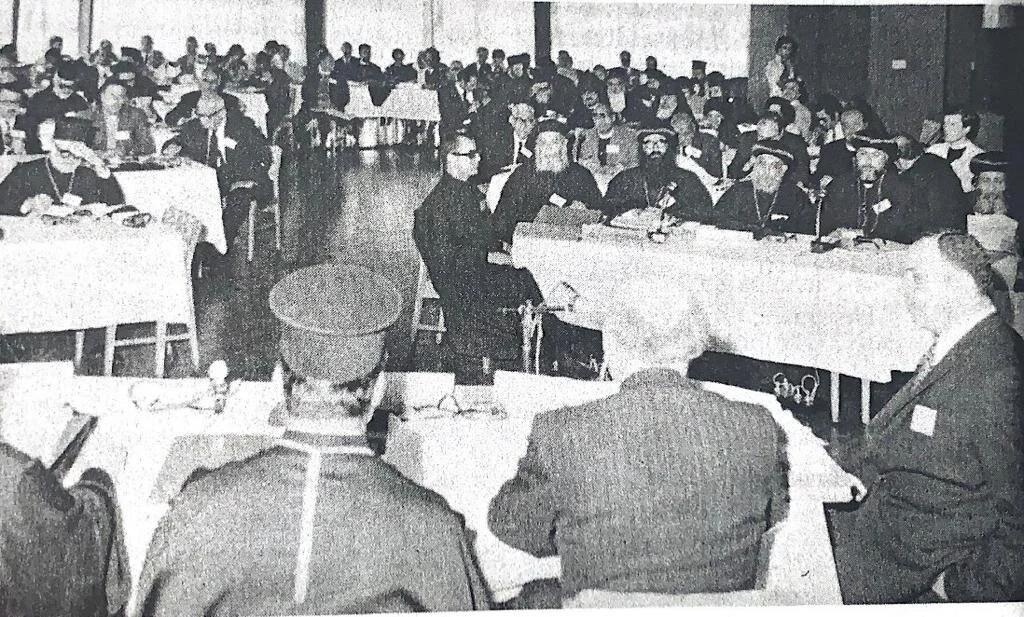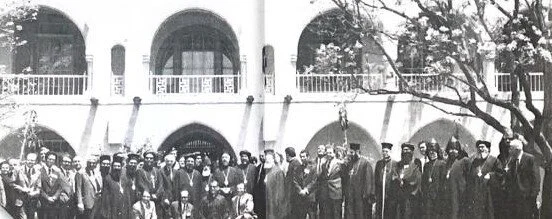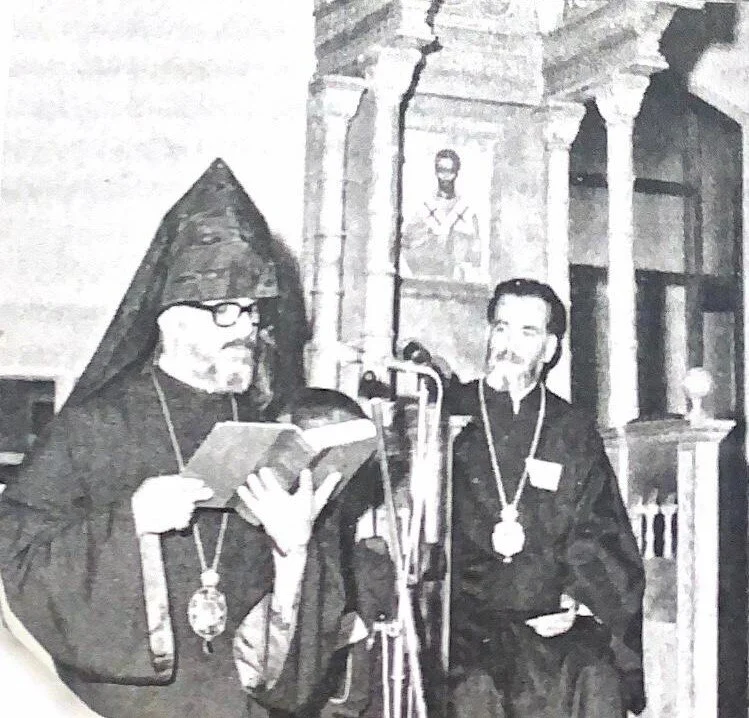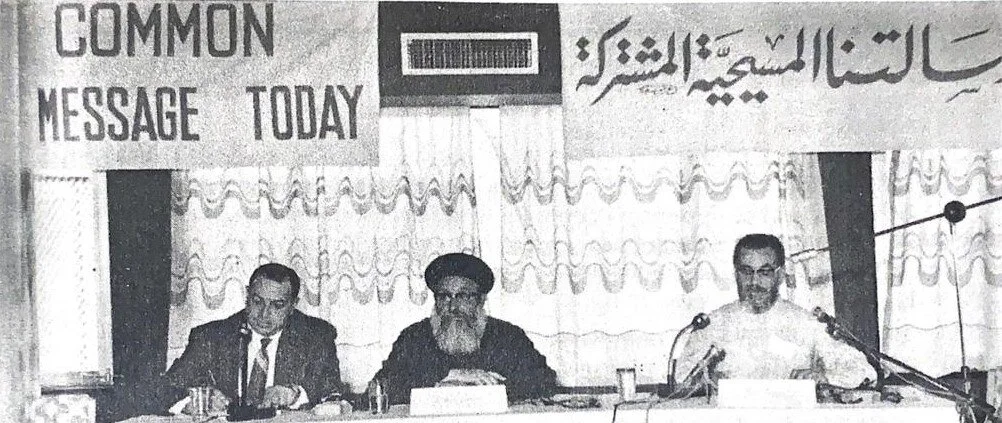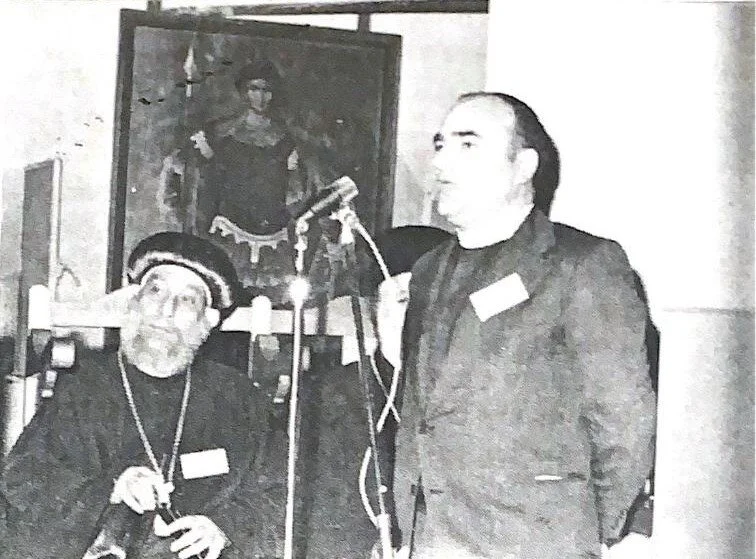47th Anniversary
The Middle East Council of Churches: An Ecumenical History and a Platform for Unity, Witness and Service
What happened during the first founding meeting between 28 and 30 May, 1974? (1)
Written by Elia Nasrallah
Translated by Mary Yahchouchy
Amidst tremendous fluctuations and crises of many levels, the Middle East witnessed the beginning of a new Christian phase in 1974 vibrant with efforts and negotiations to unify the voice of the Church under one banner that unites all the Churches of the East within the framework of a comprehensive ecumenical message calling for the acceptance of others and the preservation of the diversity that characterizes every ecclesiastical family, in hopes that these efforts instill an atmosphere of peace, love, brotherhood and cooperation... an atmosphere the Levantines have always wished for.
Thus, a new era dawned for the Churches of the Middle East and a new chapter in the history of the Eastern Church opened. The founding meeting of the Middle East Council of Churches was held in Nicosia - Cyprus between May 28 and 30, 1974. Delegates representing more than six and a half million Christians participated in the meeting from Eastern, Chalcedonian Orthodox, Non-Chalcedonian, Evangelical and Episcopal Orthodox Churches. They all voted to form a regional council for joint testimony and service in this part of the world, after several negotiations that lasted for ten years by the synod of churches in the former Near East.
The Founding: A Mighty Ecumenical Step
The founding meeting held the title “The present situation of our common Christian mission in the Middle East”, where all the speakers confirmed that the founding of the Council constitutes a mighty ecumenical step. During the meeting, an Executive Committee of 15 members was elected to direct the Council's work and services during a transitional period of twelve to eighteen months. The presidents of this committee were Pastor Huvans Aharonian, head of the Faculty of Theology in the Near East in Beirut and representative of the Armenian Evangelical League, Bishop Ignatius Hazim of the Greek Orthodox Patriarch of Antioch and Bishop Samuel of the Coptic Orthodox Patriarchate. Albert Stero was elected Secretary General of the new Council of Churches.
It has been agreed to make efforts to implement future projects for the Middle East Council of Churches based on Christian education, dialogue and testimony, ecclesiastical and development services, authoring and publishing, broadcasting - integrated with Sawt Al Enjil channel in Addis Ababa, Ethiopia. A unit serving Palestinian refugees was formed to include a department for information and interpretation of the Palestinian problem. The head office of the Council was set to be in Beirut, Lebanon, with offices in Cairo - Egypt and Nicosia - Cyprus. Today, the Council has offices in most countries of the region, from Lebanon to Jordan, Syria, Palestine, Cyprus and Egypt.
The preparatory committee that held this founding meeting included members from different ecclesial families: The Chalcedonians: His Eminence Archbishop Constantine Michaelides, Metropolitan Ignatius Hazim and Metropolitan Parthenius. Of the non-Chalcedonians: The sovereign Anba Samuel, Father Aram Kishishian and Father George Saliba. Evangelists and Bishops: His eminence Pastor Hovans Aharonian, Pastor Ibrahim Melhem Dagher and Pastor Fayez Fares In addition to the two secretaries, Pastor Albert Stero and Mr. Gabriel Habib.
Preparatory Committee Report
The aim of this founding meeting was to start the transition phase from the old ecumenical structures to the new ones, as it began with merging different departments of the Council of Churches in the former Near East on the one hand and the rest of the independent and temporary ecumenical departments on the other hand. This is what stated the report of the preparatory committee presented by Mr. Gabriel Habib explaining that most of the arrangements proposed by the planning committee are considered their own, and therefore the executive committee has the responsibility to put it into its final form.
The report also revealed that the new ecumenical structures must be flexible so that officials and the Executive Committee can adequately address the rapid development that may occur in the ecclesiastical and social conditions in the Middle East. Therefore, "it is expected that the method of work in the new council will be less bureaucratic and more dependent on personal relationships and team work."
What was left for this new body was to consider that its only priority lies in the common denominator between the Churches on many levels, even geographically and regionally. Rather, it should be aware that the Council composed of different ecclesiastical families requires “special needs” for each of these churches to be taken into account like Eastern unity, Antiochene unity, unity between different Evangelical Churches... And to encourage the ecumenical spirit and cooperation at the national and local levels.
The report called to focus on the Catholic Churches in the process of organizing the new structures and programs in the Council, especially since the negotiation committee considered that cooperation with these churches is one of the priorities of the new Middle East Council of Churches.
Source: Booklet of the Middle East Council of Churches Inaugural Assembly - “Our Common Christian Message Today”
Pictures: MECC Communication and Public Relations Department
Communication and Public Relations Department

